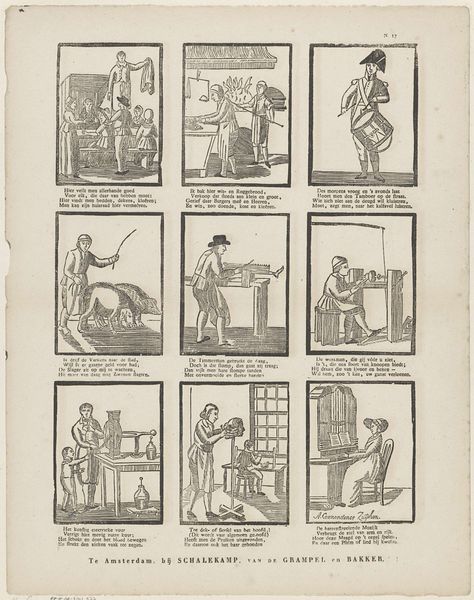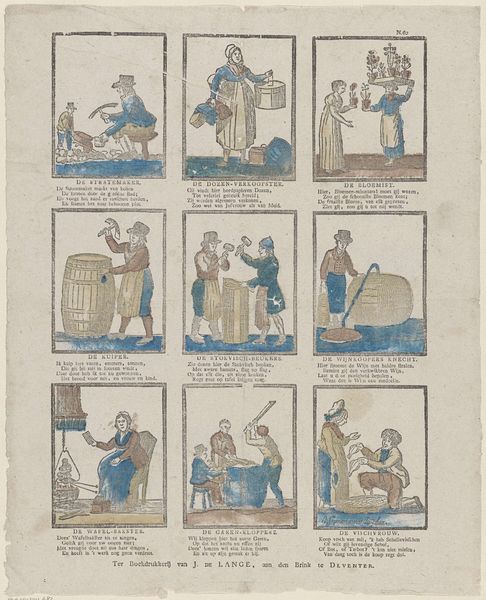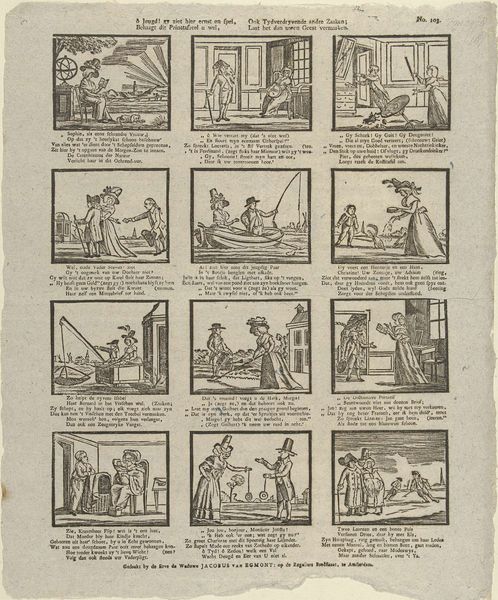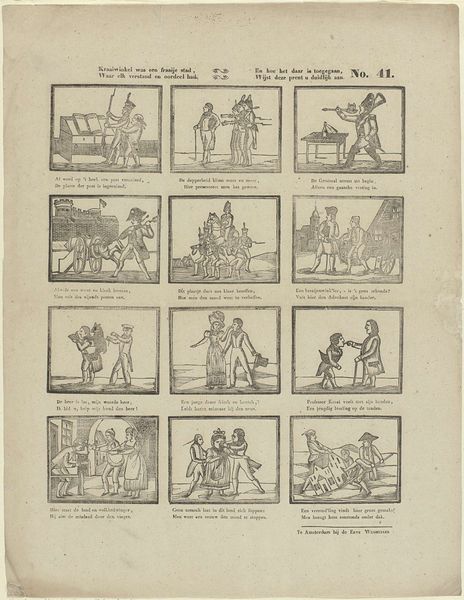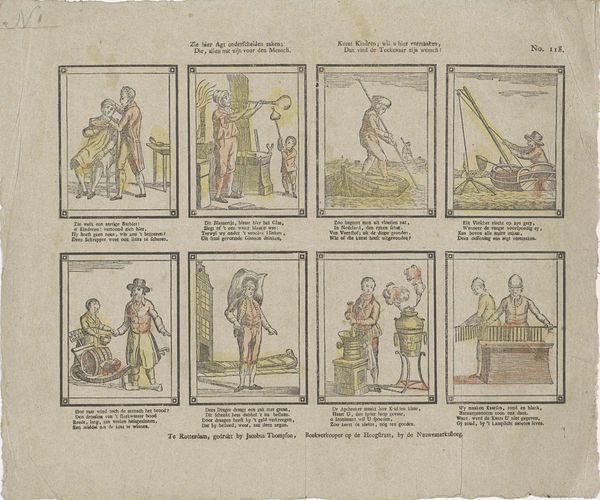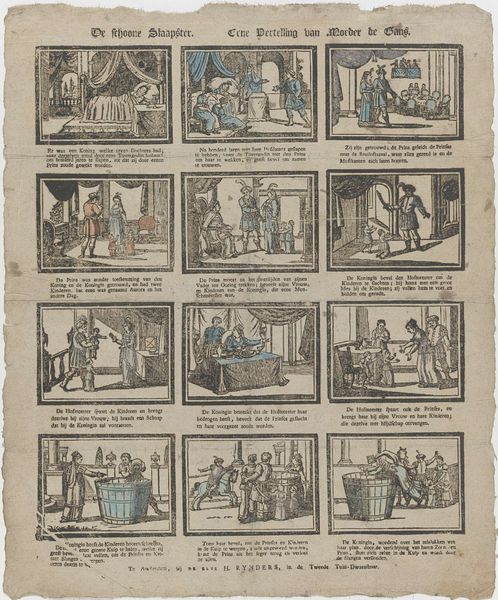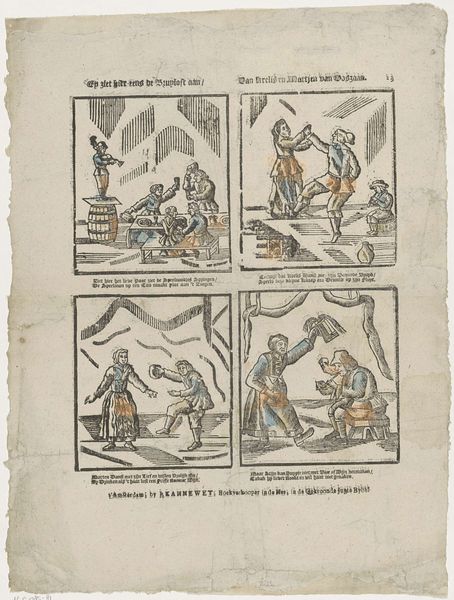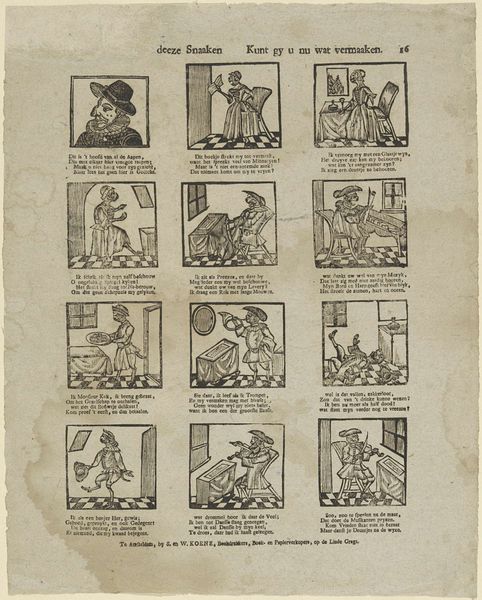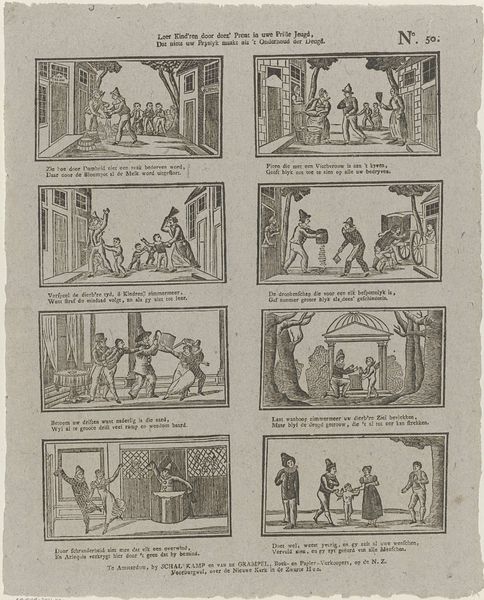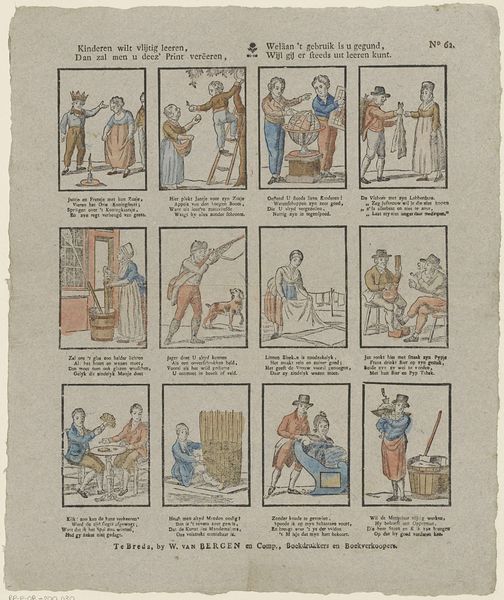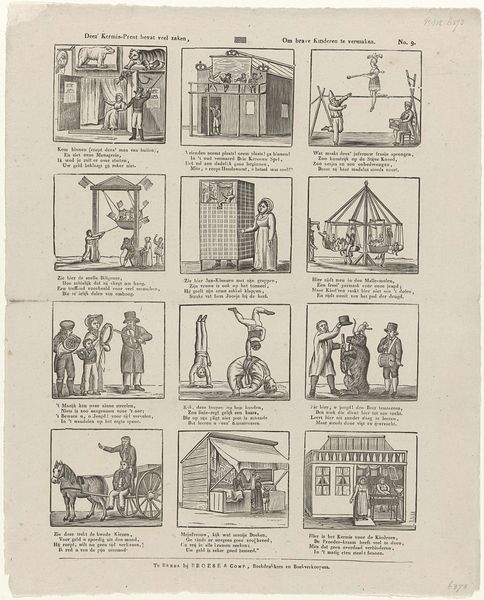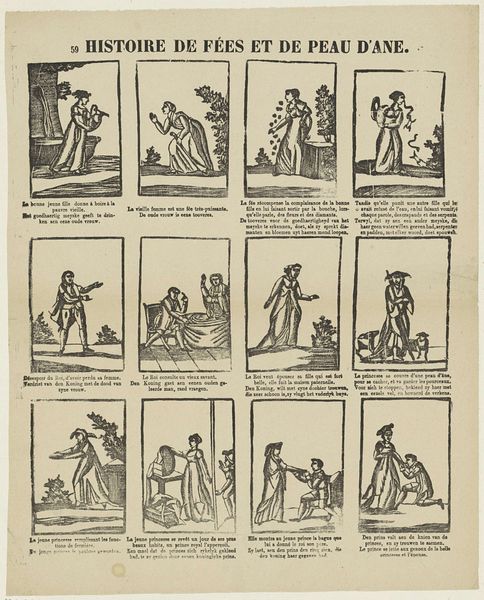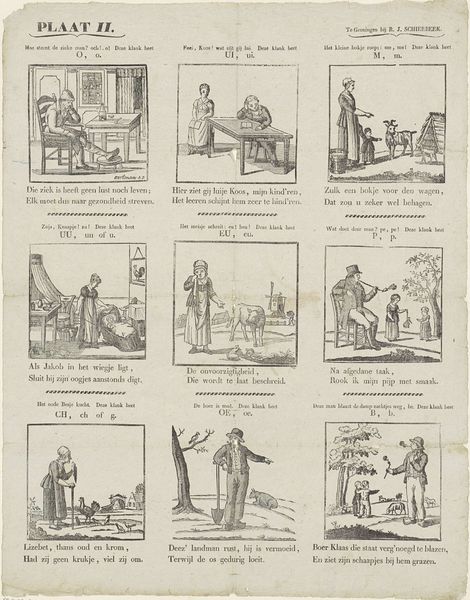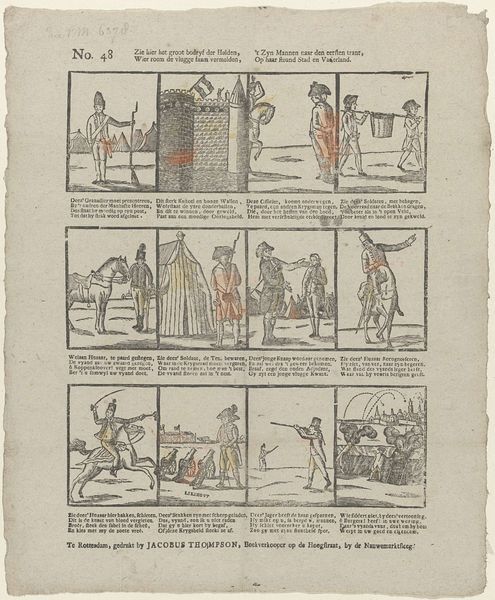
print, paper, engraving
#
comic strip sketch
#
aged paper
#
dutch-golden-age
# print
#
old engraving style
#
sketch book
#
traditional media
#
paper
#
personal sketchbook
#
sketchwork
#
sketchbook drawing
#
genre-painting
#
storyboard and sketchbook work
#
sketchbook art
#
engraving
Dimensions: height 391 mm, width 325 mm
Copyright: Rijks Museum: Open Domain
Editor: So, here we have “Ambachten en beroepen,” or "Trades and Professions," an engraving from between 1822 and 1849, located at the Rijksmuseum. It’s quite charming, almost like a page from a storybook, depicting various jobs. What's your take on it? Curator: It’s fascinating to see these occupations represented as part of popular visual culture. Prints like these were mass-produced, playing a crucial role in shaping perceptions of different trades and social roles. Think about the intended audience—likely emerging middle classes. How does the imagery here reinforce or challenge existing social hierarchies? Editor: I suppose it’s showing everyone has their place and their role? The drawings are pretty straightforward. Is there something deeper I’m missing? Curator: Consider the context of the Dutch Golden Age, which preceded this piece, and its obsession with depicting everyday life. This engraving builds upon that tradition, but what has changed? The Industrial Revolution was dawning; does this portrayal of manual labor celebrate or subtly lament the shift toward mass production? Editor: It's interesting that some of these jobs still exist today, while others feel distinctly historical. How did the artists choose which professions to feature? Curator: The selection tells us about the period's economy and social values. Including both “traditional” crafts like coopering and the relatively new profession of "wine carrying" tells a story. It points to emerging consumer markets. This wasn’t just a record, but a construction of what was considered important. Editor: So it's not just *showing* the jobs, but *telling* us something about the world at the time. Thanks, I see it differently now! Curator: Exactly. And understanding that subtle act of image-making lets us reflect on how our current visual culture shapes similar social narratives.
Comments
No comments
Be the first to comment and join the conversation on the ultimate creative platform.
